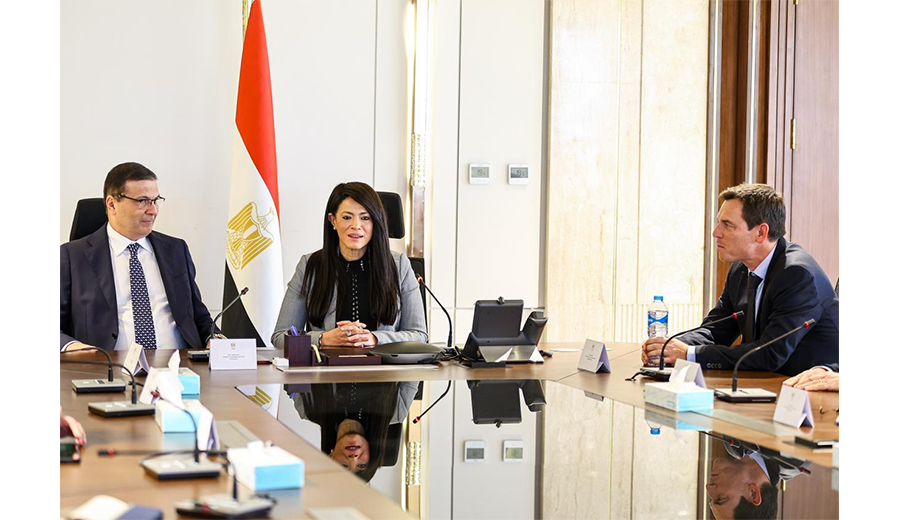National Initiative for Smart Green Projects’ coordinating committee runs meeting to monitor 2nd round work

27 June 2023
The Coordinating Committee of the National Initiative for Smart Green Projects (NIGSP) held a meeting chaired by Dr. Mahmoud Mohieldin, Chairman of the National Committee for Arbitration of the initiative, to follow up the work of the second session and draw a road map for its various stages, in the presence of Ambassador Hisham Badr, the National Coordinator and Chairman of the Organizing Committee of the initiative, Engineer Khaled Mustafa, Permanent Undersecretary of the Ministry of Planning and Economic Development, Dr. Hisham Helbawi, Deputy Minister of Local Development, and the initiative team.
During the meeting, Dr. Mahmoud Mohy El-Din praised the efforts and achievements of the initiative team, pointing to their efforts to involve the first project for people of determination in the initiative, stressing the importance of exchanging ideas to confront climate changes with the local community and involving them to find real solutions. He also stressed the importance of the role played by the governorates in spreading the culture of climate action and encouraging all groups, especially youth, to find practical solutions to problems that represent a priority for each governorate.
Dr. Mohy El-Din stressed the importance of the role played by the initiative in creating many partnerships with local, regional, and international bodies, and involving the winners of the initiative in international conferences to present their projects, allowing to extrapolate pioneering Egyptian experience regionally and internationally.
For his part, Ambassador Hisham Badr, the national coordinator of the initiative, reviewed the steps that have been taken since the start of the second phase, according to the plan, and the results achieved by the initiative so far. Referring to extending the submission period until the end of July 2023, to allow the largest number of projects to participate, stressing that the initiative is working hard to be the main engine for producing ideas that provide solutions to environmental problems and climate change in Egypt and transferring them to the world.
Badr referred to the great leap achieved by the initiative through the training courses that were held nationwide in cooperation with the trainers of the relevant ministries with universities, youth centers, as well as the governorates, explaining that the initiative’s pages on social media platforms include a number of training courses that help participants in how to submit their projects and to properly complete their applications.
The general coordinator of the initiative also reviewed the partnerships that were held during the second session of the initiative, referring to the partnerships that took place at the local level with a number of entities like the Federation of Industries, banks, and the Financial Supervisory Authority, as well as the cooperation of the initiative with a number of international institutions including the United Nations affiliates, the African Development Bank, as well as a number of partners from international institutions interested in smart green projects in the initiative
Badr also referred to the initiative's desire to transfer the pioneering experience at the global and Arab levels, within the framework of the international and Arab bodies and institutions praising the initiative, pointing out that the League of Arab States honored the initiative on Sustainability Day, and its inclusion in the agenda of the Arab Committee to follow up the implementation of the sustainable development goals (SDGs), as well as technical support which will be presented by a number of United Nations organizations in Egypt to the initiative as a pioneering and unprecedented model in the world.
On his part, Eng. Khaled Mustafa pointed to the existing cooperation between Egypt and the United Arab Emirates in strengthening government work and developing services between the two countries; referring to Egypt's readiness to transfer the Egyptian experience represented in the initiative, and the expertise it gained, to the sister country of the Emirates, taking into account the different circumstances between the two countries, and then transferring the initiative to a number of other countries through similar knowledge exchange programs.
Finally, the initiative team also reviewed the achievements made on the executive side.
To register with the initiative, please visit the official website www.sgg.eg









